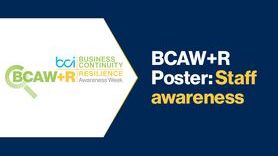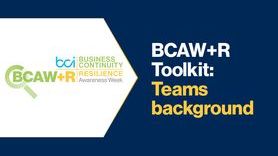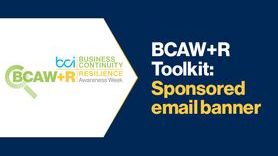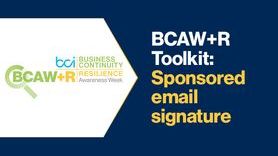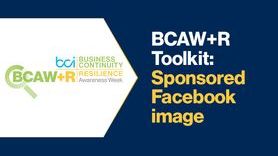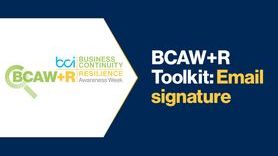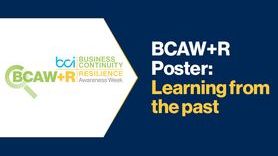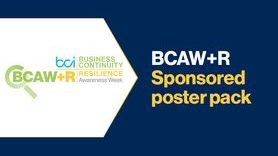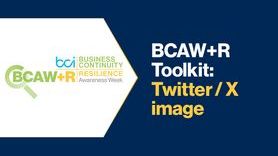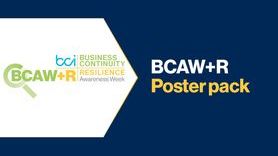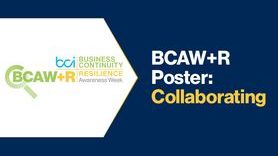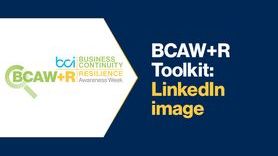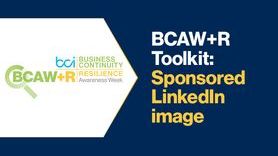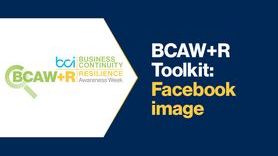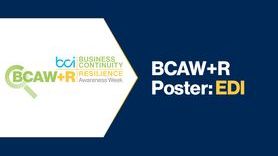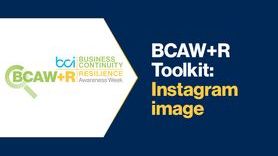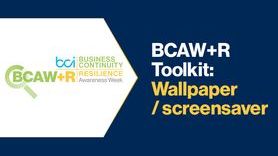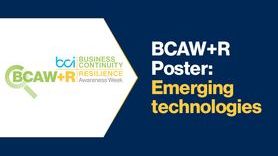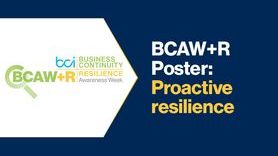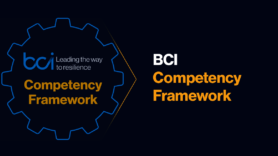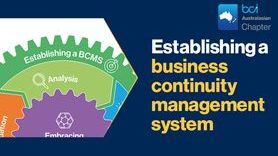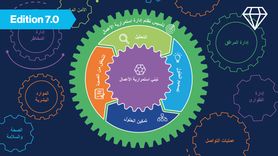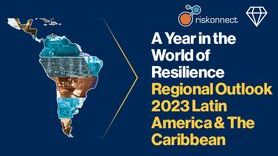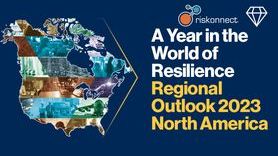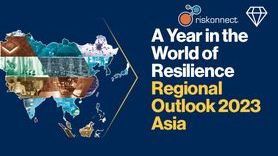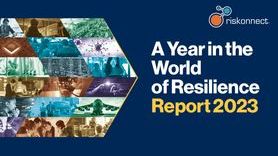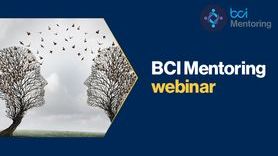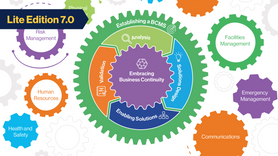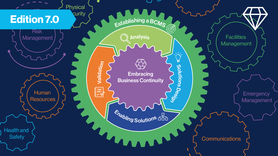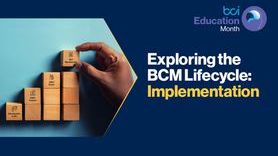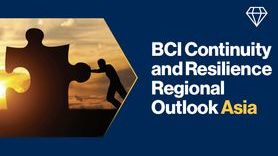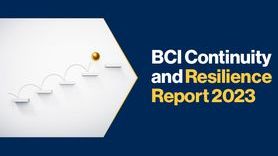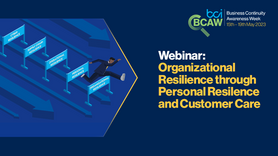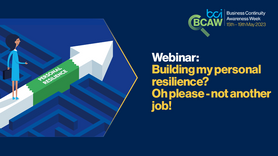BCI Malaysia Chapter spotlight: Nazlan Jamzari MBCI
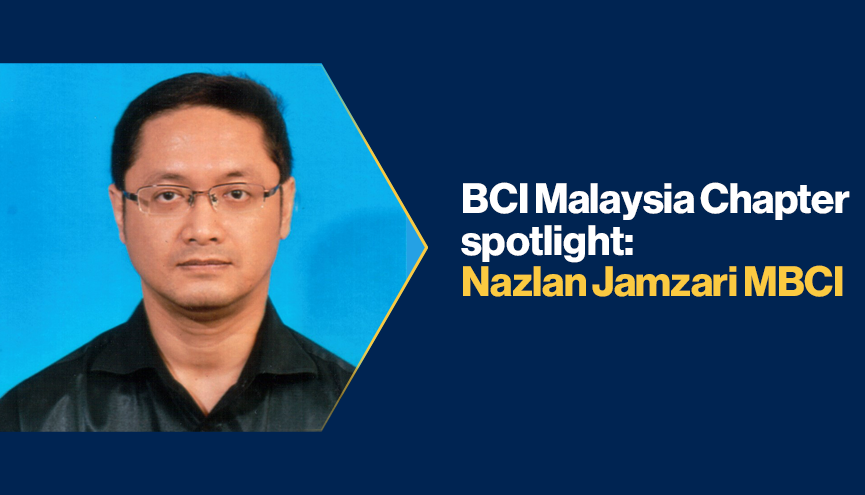
Could you please tell us about your current role and how you got into Business Continuity (BC)?
I am currently working at UMW Corporation as Head of Business Continuity Management (BCM) under their Group Risk Management and Integrity Division. I am responsible for the BCM Programme of their local and overseas business areas including Automotive, Equipment, Manufacturing & Engineering, Aerospace, Innovation, and Land businesses. In regard to my relationship with The BCI, I am an MBCI as well as the Vice Chair of the BCI Malaysia Chapter.
As my main expertise was IT and operational internal auditing, my career journey in Business Continuity (BC) began quite accidentally in 2015, through then Malaysia’s government’s initiative to increase the number of their working sector’s certified professionals under the GR1P Programme. BC and Organizational Resilience was a sector where certified professionals were sought, and so I took and passed the CBCI exam. Subsequently, by gaining more professional experience I was awarded the AMBCI membership, and for the next four years, I conducted supplemental BCM audits in addition to the routine IT and operational ones. In 2019, I was offered the position of Head of BCM and thus my BC career actually began and continues to this day.
What do you see as the emerging threats and risks, as well as the trending topics, in your region?
I believe that we have not seen the last of pandemic-related risks, so complacency and a false sense of security will be the ‘bane of society’ in general, and trending topics like cybersecurity have been preached to no end (especially as a result of the pandemic and an increase in remote working), this will be (if not already) decoupled from being associated with anything in particular and stand as its own concern, due to lucrative value of information these day and age extracted by nefarious methods such as phishing and ransomware. Related to this, there is also a shortage of qualified cyber security professionals to help support IT resilience.
Supply chains are also a ‘sticky subject’. Supply chain risks revolve around the realisation that in addition to being disrupted previously as a result of a global lockdown, there are also global conflicts, and concerns on nations’ sovereign rights to their rare natural resources and their intellectual property that need to be addressed. Supply chain resilience is now a priority within corporate boardrooms’ agendas, but sometimes there is not enough information about which business areas are most exposed and making it difficult to ensure that business continues operating..
Being a part of ASEAN, Malaysia has now jumped on the Sustainability movement. BC is part of this movement as any organization's survivability needs to consider both the ethical expectations of a responsible company and the expectations of its current and future stakeholders. This is done by referring to the United Nations’ 17 Sustainability Developments Goals (SDG) for guidance.
What has been one of your greatest challenges in this industry?
My challenges have always been about BC visibility. There needs to be continuous reminders and education on BCM, while emphasizing the need for a holistic approach that allows Management to identify potential impacts that threaten an organization and build a framework to mitigate the effects of those risks. BCM should not be treated as a separate discipline within an organization, it should be implemented with a collaborative approach and integrated with existing recovery plans and procedures. . When employees understand the benefits of having a BCM program, an organization’s readiness to deal with disruptive events improves.
What changes would you like to see in this industry?
The industry could benefit from bringing together all organizations that champion BC/R to promote a unified professional certification process. With the prominence that BC/R is currently gaining, I receive questions as to whether it’s better for staff to take certification from ‘Body A or Body B’ when I myself as an MBCI work very well and cohesively with staff who are certified with some other BC/R organizations. Some measures of joint recognition would go a long way toward further elevating the profession internationally.
What piece of advice can you share for others working in BC and Resilience?
Quite a few I would like to share in brief, actually. Always ask questions and get involved with Audit and Risk-related activities as much as possible. These can prepare you to be a more well-rounded BC professional. Having mentors is a plus for you to always have a ‘North Star for guidance’, and finally get certified by a reputable BC organization…. so people have no doubts acknowledging that you actually know what you are talking about.
What upcoming activities are being planned within the Chapter?
One of the BCI Malaysia Chapter’s aims is to promote BCI membership upgrading, and for that, we are planning an online session with the local member base. This is on top of our continued support of The BCICentral Office activities such as the BC Awareness Week (BCAW) and BCI Education Month.. We are also looking to increase the number of dedicated BCI Malaysia Chapter committee members before increasing the number of annual local chapter activities.
Anything else you want to add?
There is a general need for Resilience disciplines, which means a bright future for BC/Resilience professionals. We should capitalize on this to be further relevant and significant to our respective organizations in their ongoing efforts to stay resilient in the face of headwinds through continuous learning and professional development.




